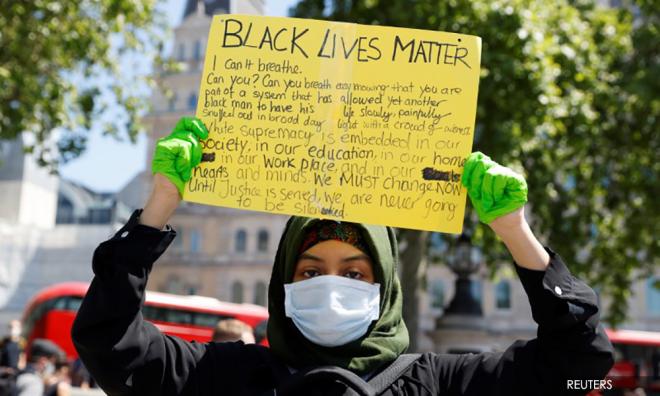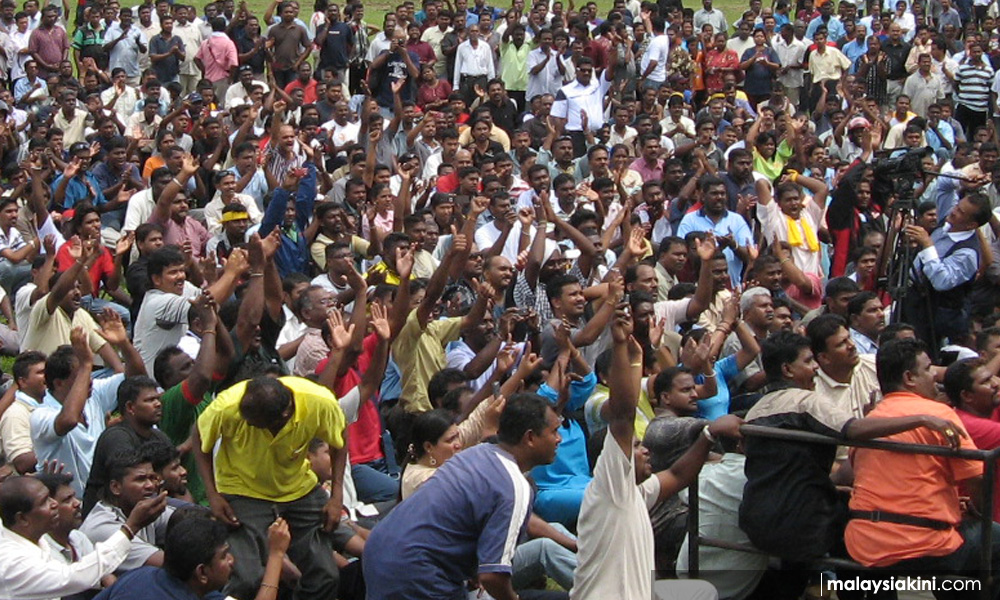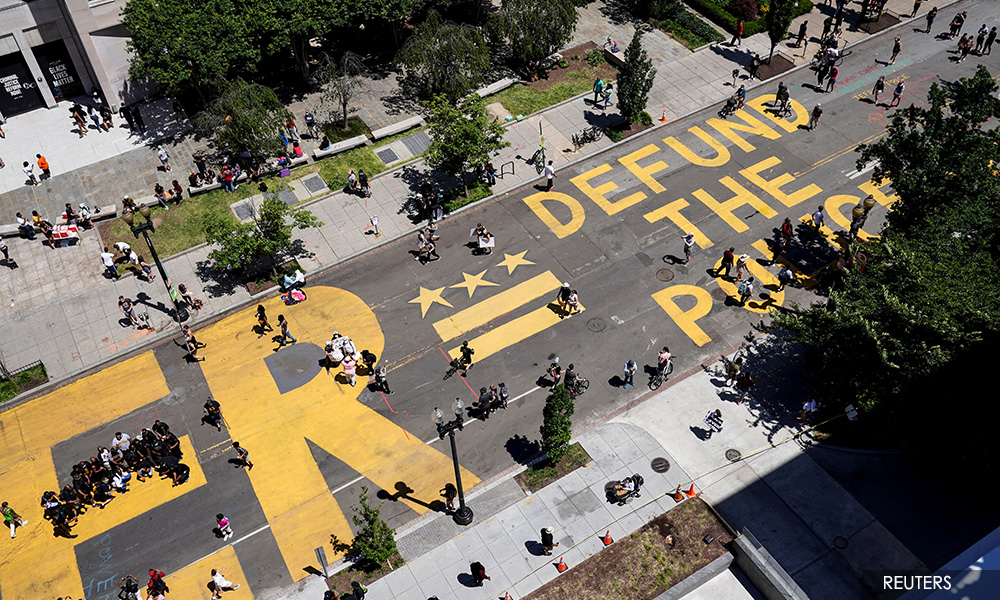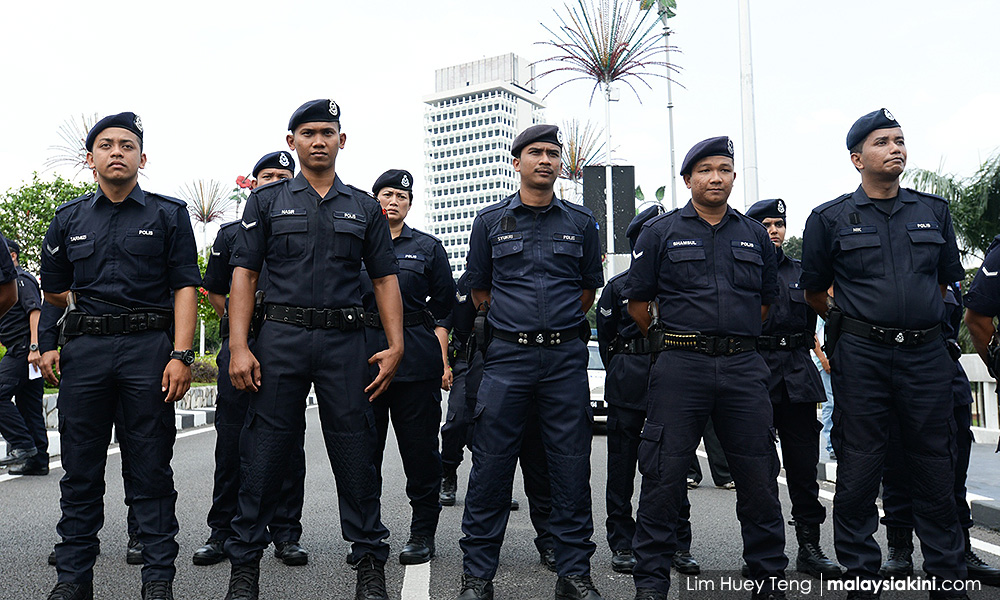
In recent days, when the words ‘Black Lives Matter’ are being echoed throughout the world, a difference of opinion has developed within some parts of civil society in this country as to whether that slogan should have resonance in Malaysia.
On the one hand, some statistics have been relied upon to suggest that deaths in police custody among the ethnic Indian community in Malaysia are 23 percent of the total. Another view has it as high as 55 percent.
Given that the Indian Malaysian community makes up approximately seven percent of the population, one conclusion is that the deaths of Indian Malaysians in police custody are disproportionately high. On this view, ‘Black Lives Matter’ is clearly an issue in Malaysia.
The contrary opinion is that 23 percent may not be disproportionately high if Indian Malaysians make up 23 percent of all those arrested in Malaysia. In this case, the number of deaths in police custody is proportional to the percentage of Indian Malaysians that are arrested as a whole. In which case ‘Black Lives Matter’ should not resonate in Malaysia and that, if it does, it represents a misunderstanding of the actual situation of deaths in police custody in Malaysia.
Both arguments perhaps miss or gloss over two points. The first is, why is it that deaths in police custody occur in such high numbers in the first place? On average, approximately 18 people have died in police custody every year between 2000 and 2018. The second is, why does the Indian Malaysian community constitute 23 percent of persons arrested for alleged criminal offences in any one year, when they are only seven percent of the Malaysian population?

In 1997, when Tony Blair was leading ‘New Labour’ into the general election, which would see him become the prime minister of the United Kingdom, his party launched their ‘law and order’ proposals under the slogan, ‘Tough on crime, tough on the causes of crime.’ As it suggests, law and order were supposed to mean more than simply the headline statistics of crime rates. In order to bring crime rates down, one had to study and address the underlying reasons for acts of criminality.
Likewise, if the percentage of arrests from the Indian Malaysian community is as high as 23 percent, then we have to ask why this is so, and find out. This is where the ‘tough on the causes of crime’ part of New Labour’s slogan becomes relevant. Why is it that there seems to be a disproportionate involvement in criminal activity by a particular community?
In my view, ‘Black Lives Matter’ as a movement is not just about deaths in police custody per se, horrifying as George Floyd’s killing was. It is also about addressing the uneven distribution of economic opportunity and social mobility. Does the lack of social advancement opportunities drive people to consider criminal activity as an alternative? And if so, why is there a lack of social advancement opportunities for certain communities in our country?
Of course we in Malaysia do not employ the police to be social workers. But they police within the community. One of the ways to reduce the overall crime rate is to work with and within communities to reduce the propensity towards crime by people in those communities. In order to do this, there is a need for trust. In situations where there is a trust deficit by the community in the police, this is made all the more difficult. How can there be trust if the police and the community, or a part thereof, view each other with a degree of mutual suspicion?

Therefore, to me the calls in the US to defund the police is, when studied carefully, a call to relook at the roles that we currently expect the police to play, or which are simply assigned to the police, regardless of how successful they are in performing these tasks. It asks whether these roles might better be played by other people or organisations. And if so, to reassign some of the funding that is currently allocated to the police to that other group of people or organisations. To social workers, perhaps, or to domestic abuse or child abuse councillors or community volunteer groups or other first-responder services. The call to defund the police is, therefore, not the same as dismantling or disbanding the police force.
The problems are very real
The government of Malaysia has, through specialised working groups or agencies in the past, realised the need to address the social-economic imbalance and other structural challenges faced by the Indian community. The Malaysian Indian Blueprint is the latest such iteration of those concerns. It includes addressing issues of long-term statelessness and lack of citizenship among the Indian Malaysian community. So, the problems are very real indeed, not imagined.
But ‘Black Lives Matter’ is also about the proper treatment of those from minority communities who find themselves being detained by law enforcement authorities, and their treatment while in police custody. Which is why this call resonates also with those in Australia and Canada who are speaking out for the indigenous communities in their respective countries. So should we too, here in Malaysia. We have also had repeated situations involving our Orang Asli/Asal communities here. In the contestation for land, over which customary indigenous land rights have been asserted, why is it that it is normally the indigenous peoples who are detained, and not the external encroachers?
So ultimately, ‘Black Lives Matter’ is about the power relationship imbalance between law enforcement agencies on the one hand, and potential suspects and witnesses who are on the receiving end of physical, psychological and/or verbal abuse or mistreatment with seeming impunity. We have just had one case of death in police custody of a foreign migrant worker, and another case where there were allegations of abuse of a woman aide to a Member of Parliament by our anti-corruption law enforcement officials. The truth underlying both incidents have yet to be uncovered.
But in the words of Philonise Floyd, George Floyd’s brother, in his testimony to the United States House of Representatives Judiciary Committee, we may need to, “make the necessary changes that make law enforcement the solution – and not the problem. Hold them accountable when they do something wrong. Teach them what it means to treat people with empathy and respect.”

In this regard, we should not forget that in both the reports of the Royal Commission to Enhance the Operation and Management of the Royal Malaysian Police issued in 2005, and the Royal Commission of Inquiry into the Death of Teoh Beng Hock issued in 2011, there were recommendations that special rooms with video recording facilities be set up in which to question suspects and take statements from witnesses respectively.
As we approach the 11th anniversary of Teoh’s death on July 16, 2020, it is deeply saddening to note that these still do not appear to be standard features or in regular usage in the offices of law enforcement agencies in this country. Why is this so?
‘Black Lives Matter’ is a call for the promotion and defence of respect for the dignity of the individual, even when that individual may have transgressed the law. It is a call for equal justice for all, with accountability and transparency by everyone. As the words of Reverend Dr Martin Luther King Jr remind us, “Injustice anywhere is a threat to justice everywhere.”
ANDREW KHOO is an advocate and solicitor and co-chair of the Constitutional Law Committee of Bar Council Malaysia. He writes here in his personal capacity. - Mkini


No comments:
Post a Comment
Note: Only a member of this blog may post a comment.